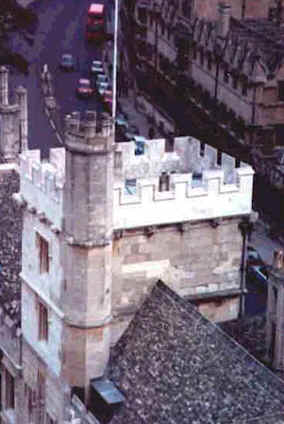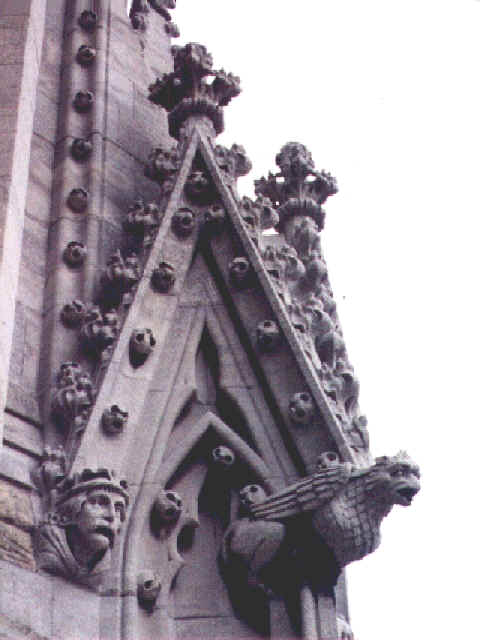 A
city in central England, on the River Thames, the county town of Oxfordshire, the seat of
a major English university organized as a federation of colleges, and an industrial city;
population (1991) 109,000. A
city in central England, on the River Thames, the county town of Oxfordshire, the seat of
a major English university organized as a federation of colleges, and an industrial city;
population (1991) 109,000.A university (studium generale) was organized there soon
after 1167, perhaps as a result of a migration of students from Paris. The first colleges
were founded in the 13th century.--University (1249), Balliol (1263), and Merton
(1264)--and Oxford rose to equal status with the great European medieval universities,
numbering among its scholars the philosopher and scientist Roger Bacon, and Sir Thomas
More; Erasmus lectured there. A centre of Royalism during the 17th century.
 Oxford declined during the
18th century, but was revived in the 1800s, particularly as a result of a renaissance in
religious thought. The University includes the Bodleian Library. The first women's
college, Lady Margaret Hall, was founded in 1878. Other landmarks include the Radcliffe
Camera (1737), the Sheldonian Theatre, and the Ashmolean Museum. Oxford declined during the
18th century, but was revived in the 1800s, particularly as a result of a renaissance in
religious thought. The University includes the Bodleian Library. The first women's
college, Lady Margaret Hall, was founded in 1878. Other landmarks include the Radcliffe
Camera (1737), the Sheldonian Theatre, and the Ashmolean Museum.
There are many ancient churches and Christ Church Cathedral is of early 13th century
date, Apart from its university, Oxford has always been a market town. Printing and
publishing are also long-established industries but it was the development of the
automobile industry in the eastern part of the city which brought it commercial
prosperity.
Hot Link-
University of Oxford |